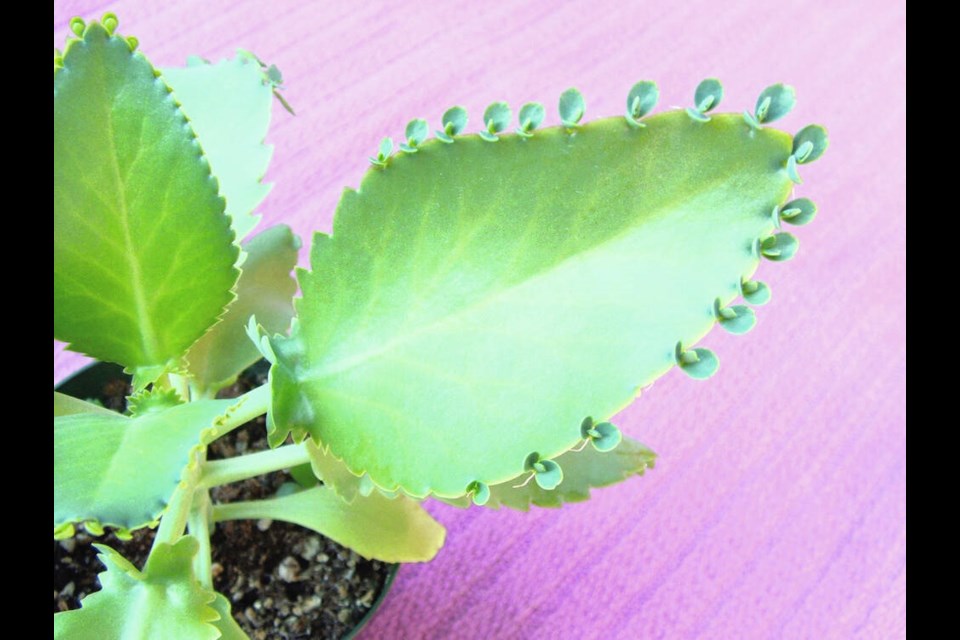Dear Helen: Some of my house plants are in great need of repotting and trimming. Is this a good time to renovate them? I’m never sure how crucial it is to address various plant projects at the very best time.
W.H.
This is probably the worst possible timing for repotting and pruning house plants. As days darken and become shorter, plants in general slow down any active growth. For many, it’s a matter now of reducing their watering and just getting them through the winter.
Though this is the general wisdom on the question, I must admit to recently defying it. The very best time for pruning and repotting house plants is at winter’s end, as plants begin sending out fresh growth. At that point, the plants respond most easily to the changes and quickly re-grow.
In a perfect world, every gardening project will be accomplished at the most favourable time. My world is not perfect. From late winter, as indoor seeding starts, through spring planting and summer outdoor garden care I struggle to find time to wash my hair, much less to renovate house plants.
That is why, a few weeks ago, I finally got around to surveying the indoor plants at the large dining room and living room windows. The windows badly needed washing, and the plant collections at both windows had turned into jungle-like muddles.
A variegated umbrella tree was overgrown to the point of toppling. A Marble Queen pothos was creeping across the living room floor, headed for the kitchen.
Both snake plants (Sansevieria, mother-in-law’s tongue) had become infested by stray plantlets shed from a “Friendship Plant” (Bryophyllum) that was a long-ago gift from a friend.
The plantlets form around the edges of the parent plant’s leaves. That original gift plant has long gone, but miniscule plantlets formed on leaves of its progeny have continued to fall into the soil of neighbouring plants, to hide there, take root, and grow. Some of the overgrown plants are now reduced in size and arranged neatly at the clean windows. Cuttings of plants too overgrown to renovate are rooting under plant lights.
Despite the unfortunate timing of the project, I think it may work. The large windows allow fairly good, bright indirect light even in winter. There is gentle bottom heat from base board heaters under the windows, And the plants are set in long windowsill trays into which I regularly dribble warm water to help increase humidity levels.
I don’t have heaps of time for coddling house plants. Investing in those plant trays has made house plant care entirely manageable.
Dear Helen: In the spring we bought and planted a dozen everbearng strawberries, which grew well but produced berries that were so soft they were good only for making jam. We have pulled out the plants and will enrich the plot with compost and plant again in the spring. Could you please recommend an everbearing strawberry that will be good for fresh eating and jam making?
P.E.
Here are some common explanations for soft berries: Inadequate moisture or/and nutrient levels in the soil; berries left to become over-ripe; moulds. Berries that are freshly ripened should be firm.
Strawberries sold as “everbearing” usually include day-neutral varieties. The two are not quite the same. “Everbearing” strawberries produce two crops, one in June and another in late summer. Day-neutral varieties bear fruit from May or June to October and are considered more desirable for their long season of productivity.
Among the day-neutral varieties, Albion consistently tops the list of most recommended. Seascape is considered good too. They are usually available at local garden centres in the spring, among the “everbearing” strawberries.
Personally, I prefer June bearers, and remain fully satisfied with my old Totem strawberry patch. The berries are large and flavourful, deliciously sweet and juicy.
There is a useful article on types of strawberries on the Oregon State University website. It is titled Growing Strawberries in Your Home Garden.
GARDEN EVENT
Floral arts. The Mid Island Floral Art Club will meet on Thursday, Nov. 9, at 2 p.m. in St. Stephen’s Church hall, 150 Village Way in Qualicum Beach. Shirley Basciano will demonstrate “Parallel Design.” Guests are welcome. Admission $5. Information at [email protected] or 250-757-8969.



